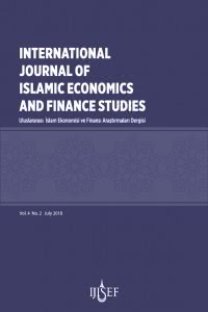Şeybânî’ye Atfedilen Kitâbü’l-Kesb: Fakirlik, Fazlalık ve Servetin Dolaşımı
Erken dönem İslâm dünyasındaki zühd ve sermaye birikimi ile ilgili modern tartışmalar Şeybânî’ye atfedilen Kitâbü’l-Kesb’den bahsetmektedir. Bu kitap aslında kolektif bir Hanefî eseridir, içeriğinin büyük kısmı Serahsî’de izlenebilir. Bununla birlikte eser, Şeybânî’ye isnat edilebilecek söz veya doktrinlerin özünü ihtiva etmektedir. Sonraki Hanefîlerin aksine, Şeybânî Kesb’de radikal zahidlere karşı herhangi bir karşıtlık göstermemektedir. Aslında o, kazançtan ve kazanmaktan daha fazla fakirlik ve bağış hakkında söz ediyor görünmektedir. Şeybânî’nin doktrinlerinden ortaya çıkan “fakirlik ekonomisi”, ilm-i tedbîr-i menzil veya “ekonomi” geleneğine dair erken İslâm düşüncesi ile açık bir şekilde ters düşmektedir, her ne kadar bunlardan ikisi de “fakirlik ekonomisi” ve “tedbir” Kesb’de geçiyor olsa da. Makale, Kesb’de ismi zikredilen tek muhalif grup olan Kerrâmiyye’ye ve onların “kazanmayı haram kabul eden” anlayışlarına (tahrîm el-mekâsib) dair bir tartışma ile sonuçlanmaktadır.
Anahtar Kelimeler:
fakirlik, müslümanlar, kuran, ilmî eserler, ticaret, burjuvazi, İslam, servet, dinî uygulamalar, yemek israfı
The Kitāb al-kasb Attributed to al-Shaybānī: Poverty, Surplus, and the Circulation of Wealth
Modern discussions of asceticism and accumulation of capital in the early Islamic world cite a Kitdb al-kasb attributed to al-Shaybani. This book is actually something of a collective Hanafi pro duction, with much of its content traceable to al-Sarakhsi. However, it does contain a core of say ings or doctrines that can be attributed to Shaybani himself. Unlike the later Hanafis, Shaybani in the Kasb does not express hostility to radical ascetics. In fact he seems to say more about poverty and charity than about acquisition and gain. The "economy of poverty" which emerges from Shay bani's doctrines contrasts sharply with early Islamic thinking in the tradition of Cilm tadbir al manzil or "economics"-even though both of these ("economy of poverty" and tadbir) appear in the Kasb. The article concludes with discussion of the Karramiyya, the only named adversaries in the Kasb, and their "declaring it forbidden to earn a living" (tahrim al-meqasib).
Keywords:
poverty, muslims, koran, treatises, commerce, bourgeois, Islam, wealth, religious practices, food wastes,
___
- -
- ISSN: 2149-8393
- Başlangıç: 2015
- Yayıncı: Politik Ekonomik ve Sosyal Araştırmalar Merkezi
Sayıdaki Diğer Makaleler
A Treatise on Socioeconomic Roles of Zakah
Şeybânî’ye Atfedilen Kitâbü’l-Kesb: Fakirlik, Fazlalık ve Servetin Dolaşımı
Titin VEGİRAWATİ, Didik SUSETYO, İnten MEUTİA, Lukluk FUADAH
Abderrahmane SAKOUİLİ, Chroqui RAZANE
Modern Dünya Bağlamında İnsan Kaynakları Kavramının Eleştirisi ve İnsan Değerleri Fikrinin Doğuşu
Abdelrahman Yousri ABDELRAHMAN
